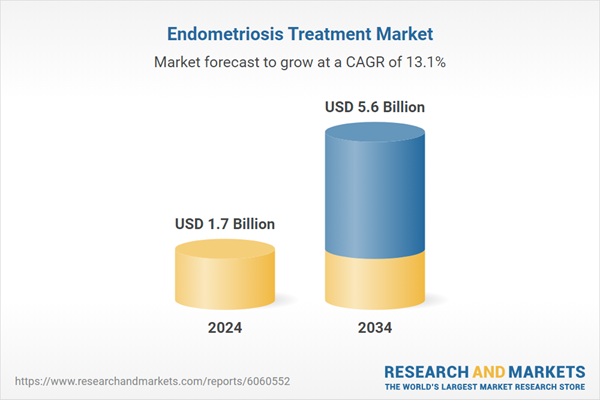Rising healthcare expenditure and improved insurance coverage have made endometriosis treatments more accessible, allowing more patients to receive timely medical attention. As awareness campaigns continue to highlight the long-term impact of untreated endometriosis, an increasing number of patients are seeking specialized care. The demand for non-invasive treatment options has surged, particularly among younger patients looking for alternatives to surgical interventions. Healthcare professionals are working to integrate personalized treatment approaches that cater to individual patient needs, further driving the market forward.
By disease type, the market is segmented into different forms, with the superficial peritoneal endometriosis segment holding a dominant 41.3% share in 2024. This form of the condition, characterized by lesions on the peritoneal surface, is widespread and more easily identifiable than deeper forms of endometriosis. As a result, it is diagnosed more frequently, leading to quicker medical intervention and higher demand for treatments targeting this type. The ability to detect and manage superficial peritoneal endometriosis early has positioned it as the most prevalent segment within the market.
Endometriosis treatment options are primarily divided into hormone therapy and pain management, with hormone therapy generating USD 802.9 million in 2024. Physicians commonly prescribe contraceptives, progestins, and hormone-modulating drugs to alleviate symptoms such as pelvic pain and excessive menstrual bleeding. These treatments are gaining popularity due to their effectiveness, ease of administration, and ability to improve patients' quality of life. More individuals are opting for hormone-based therapies as they provide symptom relief without the need for invasive procedures.
The United States endometriosis treatment market accounted for USD 582.1 million in 2024, fueled by increasing public health initiatives and awareness campaigns. Efforts to educate individuals about the symptoms and implications of endometriosis have encouraged proactive healthcare decisions and reduced stigma surrounding the condition. Advancements in medical research, a stronger focus on reproductive health, and improved access to specialized healthcare services are further accelerating market expansion. As demand for innovative treatment solutions continues to grow, pharmaceutical companies and healthcare providers are working to enhance patient outcomes through more advanced and targeted therapeutic approaches.
Comprehensive Market Analysis and Forecast
- Industry trends, key growth drivers, challenges, future opportunities, and regulatory landscape
- Competitive landscape with Porter’s Five Forces and PESTEL analysis
- Market size, segmentation, and regional forecasts
- In-depth company profiles, business strategies, financial insights, and SWOT analysis
This product will be delivered within 2-4 business days.
Table of Contents
Companies Mentioned
The key companies profiled in this Endometriosis Treatment market report include:- AbbVie
- AstraZeneca
- Bayer
- Debiopharm
- Gedeon Richter
- Kissei Pharmaceutical
- Pfizer
- Sanofi
- Teva Pharmaceutical
- Zydus
Table Information
| Report Attribute | Details |
|---|---|
| No. of Pages | 107 |
| Published | August 2025 |
| Forecast Period | 2024 - 2034 |
| Estimated Market Value ( USD | $ 1.7 Billion |
| Forecasted Market Value ( USD | $ 5.6 Billion |
| Compound Annual Growth Rate | 13.1% |
| Regions Covered | Global |
| No. of Companies Mentioned | 11 |









